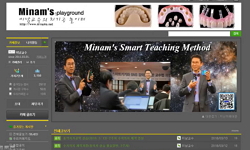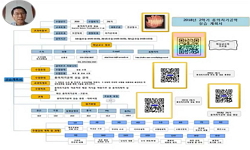This study aimed to investigate the learner factors, facilitator factors, and expected outcomes that constitute simulation practice and to identify the factors influencing simulation practice on learners' Nursing competencies. This descriptive researc...
http://chineseinput.net/에서 pinyin(병음)방식으로 중국어를 변환할 수 있습니다.
변환된 중국어를 복사하여 사용하시면 됩니다.
- 中文 을 입력하시려면 zhongwen을 입력하시고 space를누르시면됩니다.
- 北京 을 입력하시려면 beijing을 입력하시고 space를 누르시면 됩니다.
https://www.riss.kr/link?id=A109773814
-
저자
이정은 (한서대학교)
- 발행기관
- 학술지명
- 권호사항
-
발행연도
2025
-
작성언어
English
-
주제어
시뮬레이션실습 ; 간호역량 ; 학습자 ; 간호학생 ; 임상수행능력 ; Simulation training ; Nursing competencies ; Learners ; Nursing students ; Clinical performance
-
등재정보
KCI등재후보
-
자료형태
학술저널
-
수록면
113-127(15쪽)
- DOI식별코드
- 제공처
-
0
상세조회 -
0
다운로드
부가정보
다국어 초록 (Multilingual Abstract)
This study aimed to investigate the learner factors, facilitator factors, and expected outcomes that constitute simulation practice and to identify the factors influencing simulation practice on learners' Nursing competencies. This descriptive research was conducted between October 2024 and November 2024 with 150 students at a nursing college in Jeju-si. The most influential variable on nursing competencies was clinical performance (β=.64, p<.001), followed by simulation teaching method (β=.35, p<.001), problem-solving ability (β=.19, p=.001), and simulation design characteristics (β=.17, p=.039), and the explanatory power of these variables was 64%. This study identified four factors that affect the nursing competencies of simulation -based training learners: clinical performance, simulation teaching method, problem-solving ability, and simulation design characteristics. These findings should be reflected in the learning outcomes of the nursing education curriculum to develop simulation programs that can strengthen nursing competencies. We expect that these programs can be applied in various ways in the field of practical education
동일학술지(권/호) 다른 논문
-
간호대학생의 성적 자율성 및 성인지 감수성이 생식건강증진행위에 미치는 영향
- 한국디지털정책학회
- 김슬기
- 2025
- KCI등재후보
-
COVID-19 전후 한국 성인의 우울 증상 변화와 정책적 함의: 국민건강영양조사 2018–2022년 기반 실증 분석
- 한국디지털정책학회
- 조규영
- 2025
- KCI등재후보
-
관광환경의 급변에 따른 새로운 관광 패러다임으로서의 관광포용정책 고찰
- 한국디지털정책학회
- 이웅규
- 2025
- KCI등재후보
-
시뮬레이션 기반 교육이 의사소통 능력, 문제해결 능력, 전이 동기, 학습 전이에 미치는 효과
- 한국디지털정책학회
- 김윤경
- 2025
- KCI등재후보





 ScienceON
ScienceON eArticle
eArticle






